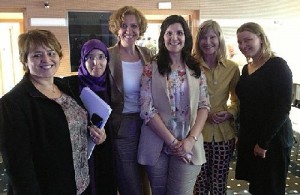
Government officials, representatives of the business world and civic interest groups from Morocco have met to exchange views with experts from the European Training Foundation (ETF) on options to improve human capital in the country’s small business sector.
Called by the national SME agency, ANPME (Agence Nationale pour la Promotion de Petites et Moyennes Entreprises), the meeting follows an assessment led by the European Commission, in cooperation with the ETF, OECD and EIB, reviewing the country’s performance on a range of policy areas critical to the competitiveness of the country’s small businesses.
Three issues in particular stand out from the analysis:
A more joined-up policy framework for promoting entrepreneurship across all levels of education would create the necessary interfaces between primary, secondary, vocational and higher education.
The energy and efforts by a range of stakeholders to promote women’s entrepreneurship could be reinforced by a national strategy specifically designed to ensure women entrepreneurs get better access to finance, training and coaching services.
Improved data on training take-up by small enterprises would allow for policy formulation.
Closing the meeting, Latifa Echihabi, ANPME’s Director General, underlined the importance of improving the enabling environment for Morocco’s small business community. “The assessment has underlined excellence and innovation in human capital developments on the ground. We need to build on this to create scale and this is where policy and strategy can help,” said Echihabi.
The enterprise policy assessment forms part of the European Commission’s support to the EU’s Southern Neighbourhood. This includes the Euro-Mediterranean Charter for Enterprise – a set of policy principles and a monitoring index to support enterprise policy developments in the EU’s nine neighbouring countries south of the Mediterranean. A report covering all participating countries will be published at the end of 2013.
The European Training Foundation is an agency of the European Union established to contribute to the development of the education and training systems of the EU partner countries. With an annual budget of €18 million, its mission is to help transition and developing countries to harness the potential of their human capital through the reform of education, training and labour market systems in the context of the EU’s external relations policy. (EU Neighbourhood Info)







